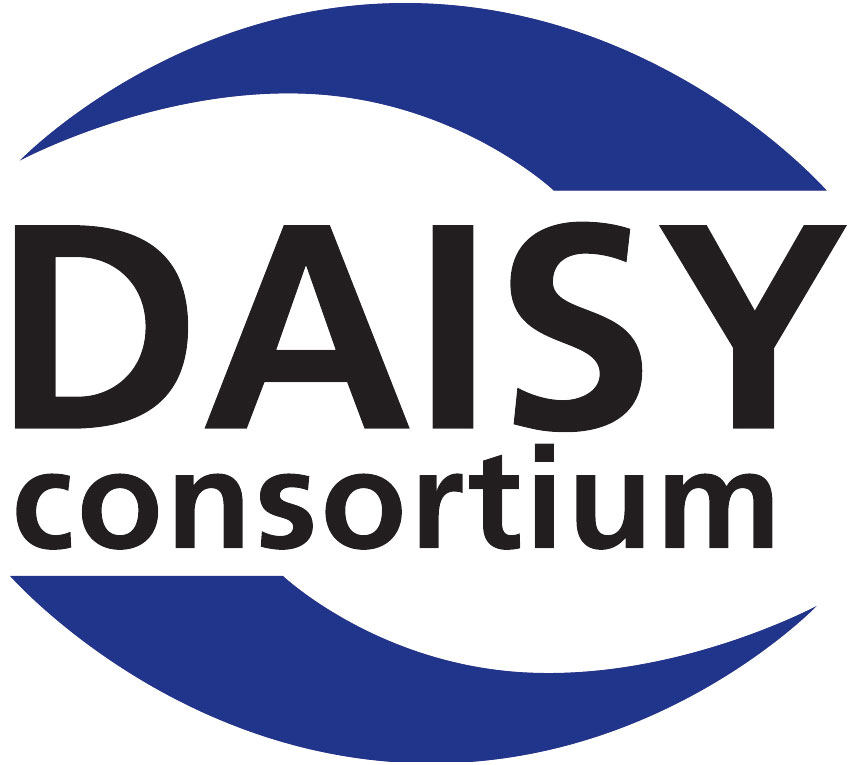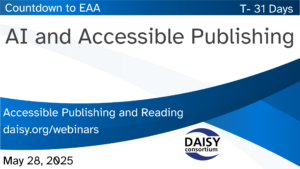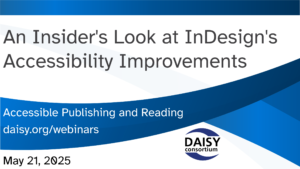News & Events
Here you will find the latest news as well as upcoming and previous events.
In our series of free webinars June 25th saw a session that focused on celebrating and reflecting on all the good work that has gone into preparations for the EAA as…
In our series of free webinars May 28th saw a session focused on AI and Accessible Publishing where our expert panel discussed ways of using AI in accessible publishing in a…
This week The DAISY Consortium was pleased to coordinate and host a special webinar focused on the accessibility improvements that have been made to Adobe InDesign. This page contains: Full…



